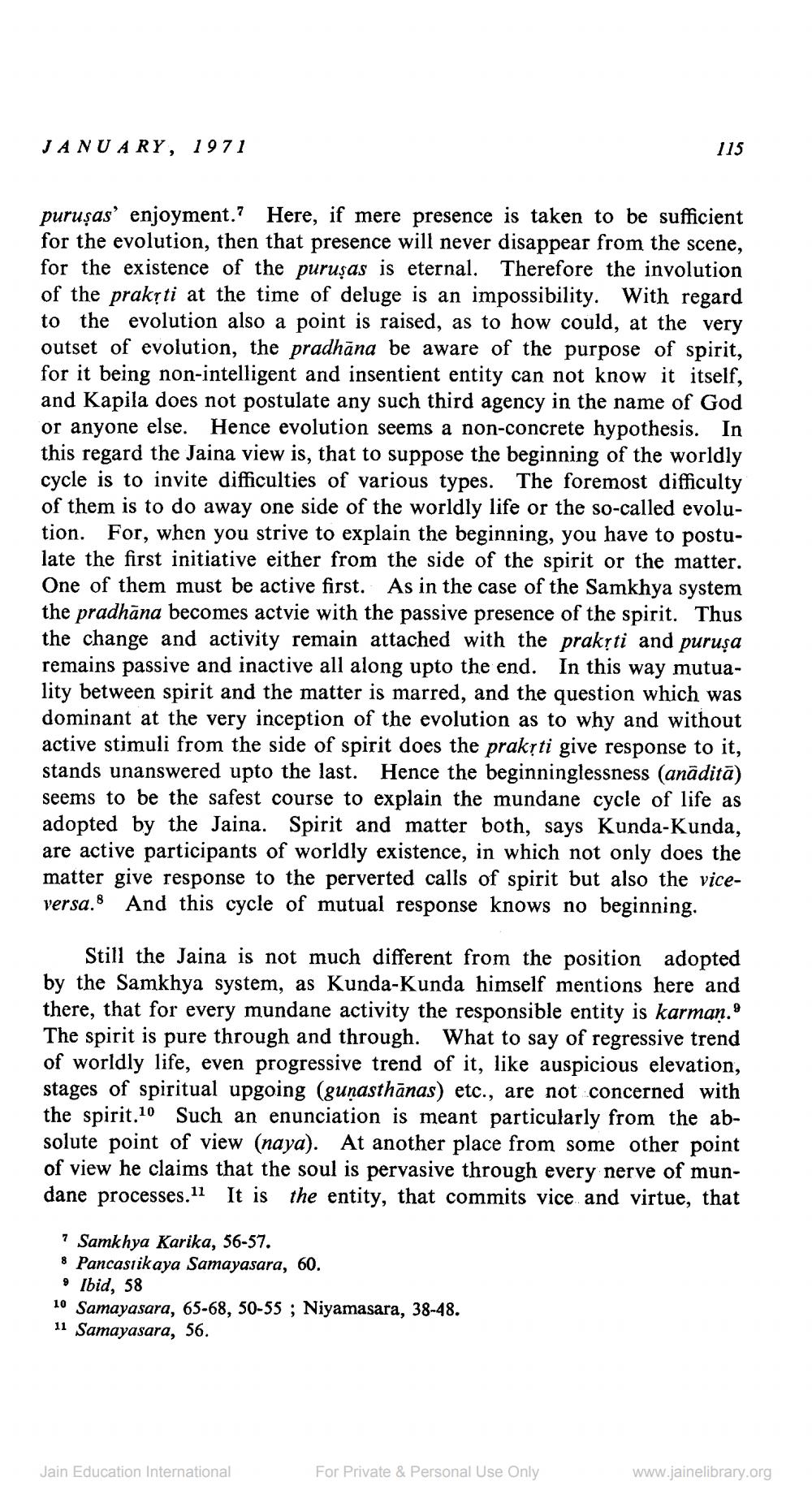________________
JANUARY, 1971
115
puruṣas' enjoyment.? Here, if mere presence is taken to be sufficient for the evolution, then that presence will never disappear from the scene, for the existence of the puruṣas is eternal. Therefore the involution of the prakrti at the time of deluge is an impossibility. With regard to the evolution also a point is raised, as to how could, at the very outset of evolution, the pradhāna be aware of the purpose of spirit, for it being non-intelligent and insentient entity can not know it itself, and Kapila does not postulate any such third agency in the name of God or anyone else. Hence evolution seems a non-concrete hypothesis. In this regard the Jaina view is, that to suppose the beginning of the worldly cycle is to invite difficulties of various types. The foremost difficulty of them is to do away one side of the worldly life or the so-called evolution. For, when you strive to explain the beginning, you have to postulate the first initiative either from the side of the spirit or the matter. One of them must be active first. As in the case of the Samkhya system the pradhāna becomes actvie with the passive presence of the spirit. Thus the change and activity remain attached with the prakrti and puruşa remains passive and inactive all along upto the end. In this way mutuality between spirit and the matter is marred, and the question which was dominant at the very inception of the evolution as to why and without active stimuli from the side of spirit does the prakrti give response to it, stands unanswered upto the last. Hence the beginninglessness (anādita) seems to be the safest course to explain the mundane cycle of life as adopted by the Jaina. Spirit and matter both, says Kunda-Kunda. are active participants of worldly existence, in which not only does the matter give response to the perverted calls of spirit but also the viceversa.8 And this cycle of mutual response knows no beginning.
Still the Jaina is not much different from the position adopted by the Samkhya system, as Kunda-Kunda himself mentions here and there, that for every mundane activity the responsible entity is karman.' The spirit is pure through and through. What to say of regressive trend of worldly life, even progressive trend of it, like auspicious elevation, stages of spiritual upgoing (gunasthānas) etc., are not concerned with the spirit.10 Such an enunciation is meant particularly from the absolute point of view (naya). At another place from some other point of view he claims that the soul is pervasive through every nerve of mundane processes. 11 It is the entity, that commits vice and virtue, that
? Samkhya Karika, 56-57. 8 Pancastikaya Samayasara, 60.
Ibid, 58 10 Samayasara, 65-68, 50-55 ; Niyamasara, 38-48. 11 Samayasara, 56.
Jain Education International
For Private & Personal Use Only
www.jainelibrary.org




